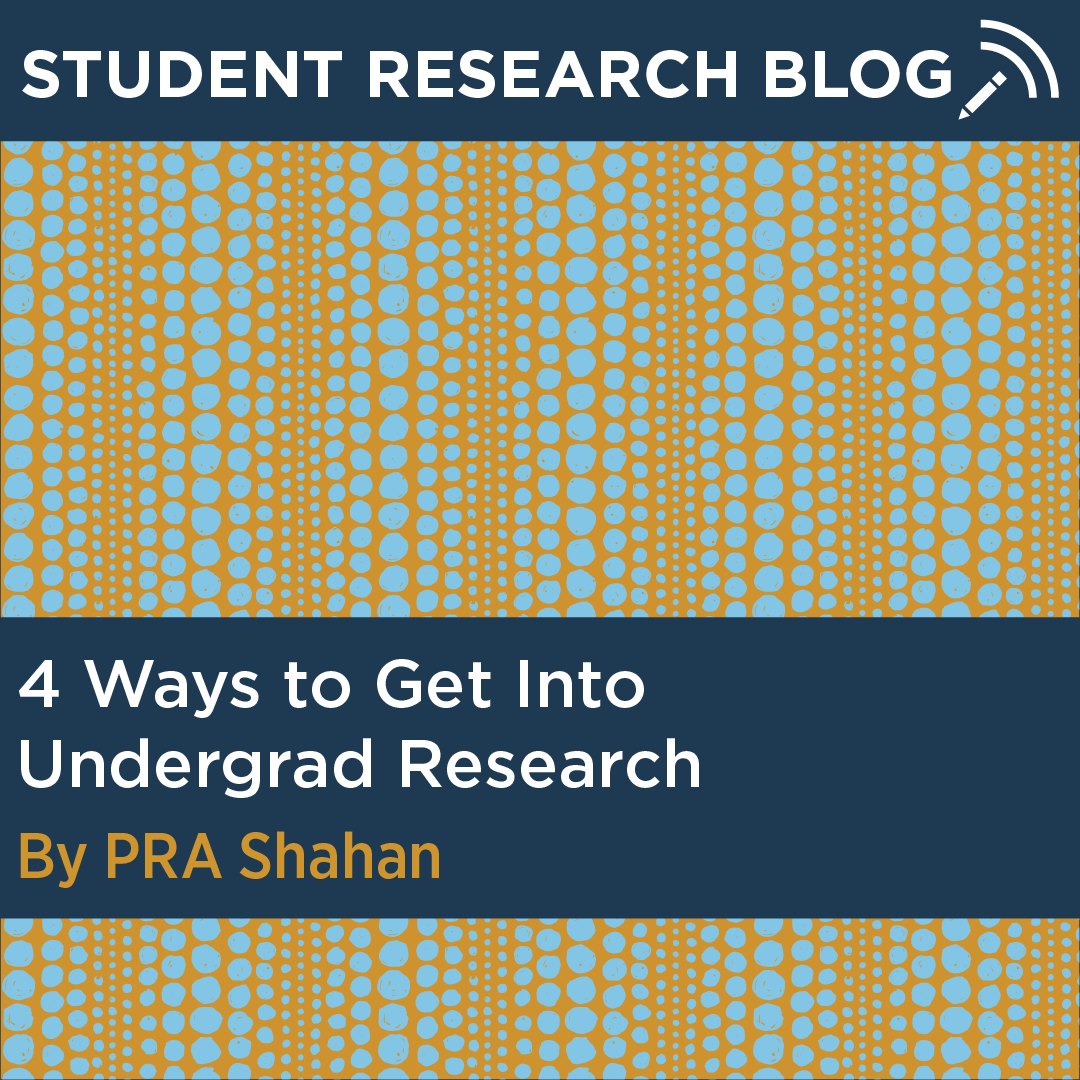By Shahan Kamal, OUR Peer Research Ambassador
 So, you want to get into research, but you probably don’t know where to start? Here are a few tips to give you an idea of what you’re in for!
So, you want to get into research, but you probably don’t know where to start? Here are a few tips to give you an idea of what you’re in for!
1. Email! Email! Email!
The most straightforward way to get an undergraduate research position is to send emails to professors. A simple look at a professor’s profile on their department website will tell you if you’re interested in the research their lab does. Even the slightest bit of interest is reason enough to email the professor and try to set up a meeting. The meeting is your foot in the door–you can talk to them about your career goals, major, research interests, or just let them further explain their work to you. Meetings put you on track to find the research spot that works well for you and get yourself started. The trick is to be resilient–professors are busy and won’t always be able to respond to emails from students they don’t know, so don’t let a few ghosted replies hinder you.
2. Talk to your professors after class
Professors like to talk to students and take an interest in them. It’s important if you want to establish a relationship with a professor that you talk to them and get to know each other. This can be after class or in office hours, but you should try to be more than just a nameless face in a crowd to them. Relationships like these open doors for students, and the mentorship a professor can provide you with is invaluable. You might find yourself fascinated by their research and have the opportunity to be an asset to their lab. On the other hand, maybe their research isn’t for you–but just a discussion with them about your preferences can help them guide you in the right direction.
3. Keep an eye on research programs
The Office of Undergraduate Research administers funding programs that connect students to research positions. The Health Research Program facilitates connections with researchers at the UConn Health Center, giving students an opportunity to get involved in the cutting-edge research happening at the Farmington campus. The Work-Study Research Assistant Program coordinates opportunities for students to use their work-study award to assist with faculty research. In addition to these programs, you can also apply for funding through the SURF Award Program or the UConn IDEA Grant Program to support ongoing projects or a new project you are taking the lead on designing. Check out all the OUR programs to see what fits.
4. Look for off-campus opportunities
Lastly, and arguably the most ignored, is to broaden your search. The Office of Undergraduate Research has an entire page on their website dedicated to showcasing opportunities outside of UConn where students can gain more research experience. Students often think that they’re bound to the campuses in Storrs or Farmington, but there are plenty of other universities and facilities that conduct research who are looking for motivated students to join their projects. On top of the opportunity to do fascinating work, these opportunities will introduce you to some of the brightest minds in the country, opening avenues to further opportunities and expanding your network.
At the end of the day, finding the perfect fit in a research lab is the result of a lot of trial and error, so you can’t be afraid to try. Even when things don’t work out, you’ll have gained experience for it, and experience will always be valuable–and when things do work out, you get to have the best of experiences.
Shahan is a senior majoring in Molecular & Cell Biology. Click here to learn more about Shahan.